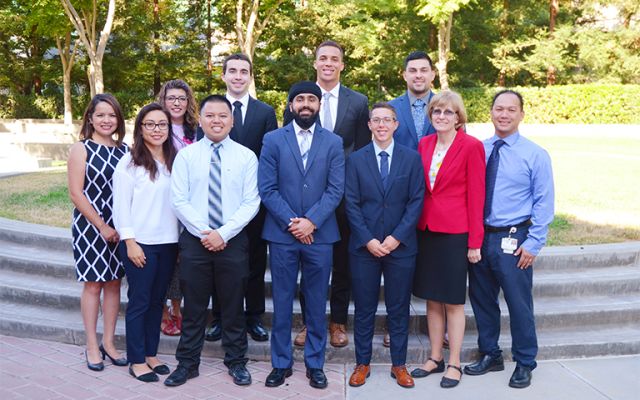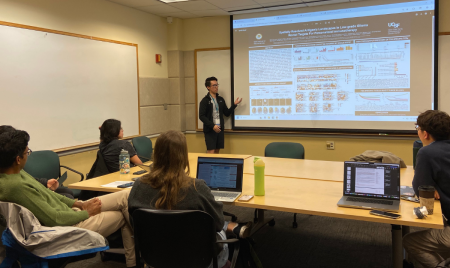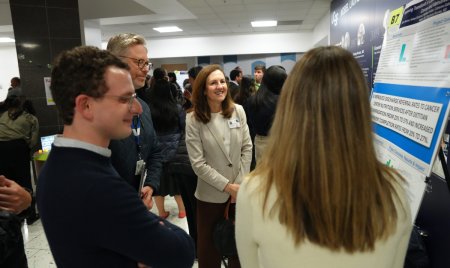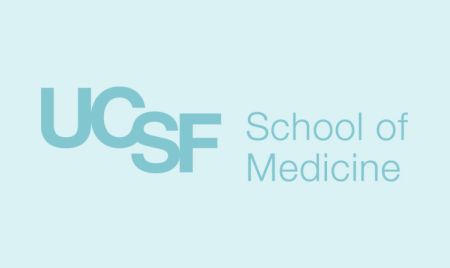First Cohort of Students in the UCSF San Joaquin Valley Program in Medical Education (SJV PRIME) Starts this Month

First Cohort of SJV PRIME Students with Faculty and Staff
The first cohort of students in the UCSF San Joaquin Valley Program in Medical Education (SJV PRIME) has begun their medical education this month.
SJV PRIME is a tailored track at the UCSF School of Medicine that aims to train students who are passionate about engaging with the community and working with underserved populations in California’s San Joaquin Valley. Last year, the Liaison Committee on Medical Education, the national medical school accrediting body, approved the program transfer from the UC Davis School of Medicine to the UCSF School of Medicine.
The San Joaquin Valley has historically faced drastic shortages of physicians and other healthcare professionals. According to a 2018 report by the University of California Office of the President, the region has the lowest ratio of licensed physicians, nurses, nurse practitioners, therapists, counselors, and social workers per 100,000 population in the state. Research shows that where physicians are raised and where they complete residency are strong predictors of where they will eventually practice. Therefore, to combat the physician shortage, SJV PRIME aims to train future physician leaders with ties to the Central Valley, in an effort to ensure that the region will have a sufficient physician workforce to meet its future health care needs.
With the combined expertise of UCSF, UC Merced, and UCSF Fresno faculty, researchers, educators, and leaders, the 6 students in the first class of UCSF SJV PRIME will gain exposure to supplementary curriculum exploring the unique health care needs of the Central Valley. For example, students will spend the first 18 months of Foundations 1 in San Francisco, along with classmates in the regular MD program, and attend a seminar course similar in structure to that in the Program in Medical Education for the Urban Underserved (PRIME-US).
The SJV PRIME seminar will explore social determinants of health and educate students on the San Joaquin 6, a curricular framework that parallels the UCSF 49, capturing pertinent issues of the Central Valley, which includes coccidioidomycosis, methamphetamine abuse, human trafficking, pre-term birth, diabesity, and immigrant health.
Dr. Leticia Rolon, Assistant Professor in the Department of Medicine and the newly-appointed San Francisco-based Associate Director of SJV PRIME, said that the mission of this program resonates with her, because she grew up in a similarly medically underserved area with a large immigrant farm worker population.
“I always felt a desire to give back to my community of Santa Maria, CA, which is very similar to the SJV demographically, culturally, and with similar challenges in healthcare access. Working to develop the SJV PRIME curriculum, which educates and trains doctors who will specialize in identifying and treating diseases specific to the San Joaquin Valley, has been a very rewarding experience,” said Dr. Rolon.
Students in the SJV PRIME program will go through the San-Francisco based UCSF School of Medicine curriculum for 1.5 years, and then do their clinical rotations in Fresno to work full time with that patient population.
For example, SJV PRIME students will spend the majority of their Assessment, Reflection, Coaching, Health (ARCH) Weeks in Fresno. Their coaching group will consist of other students in the same SJV PRIME cohort and be led by coach, Marlene Martin, MD, based at Zuckerberg San Francisco General Hospital during Foundations 1. After completing Foundations 1 in San Francisco, a Fresno-based coach will then lead the coaching group when the students enter Foundations 2, Career Launch, and Deep Explore, a component of the Inquiry Curriculum, at UCSF Fresno.
“These students were selected because of their dedication to working in the Valley,” said Dr. Loren Alving, director of UCSF SJV PRIME. “Our hope is that eventually they will work in the Valley, regardless of their specialty.”
Learn more about the entering class of UCSF SJV PRIME students.









